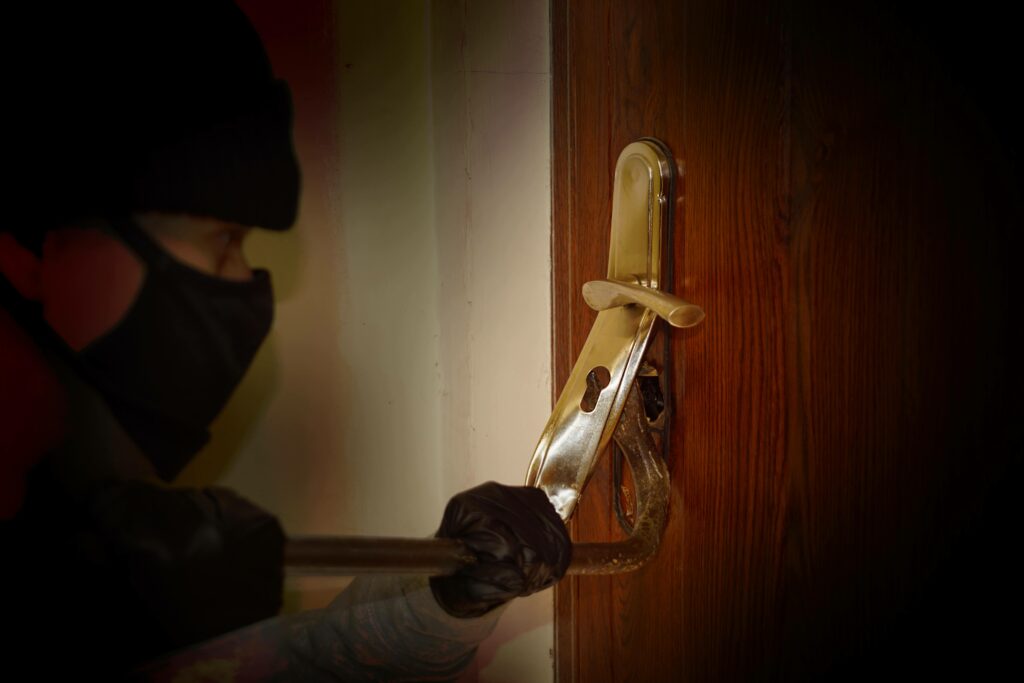Moving and change are a part of human life. While some enjoy it more than others, we are better than most people believe. The majority of people schedule their move on a Friday to be able to rest on Sunday. How can you make your move as easy as possible? The greatest moving checklist is here to help!
Six to Eight Weeks Before the Move
Make a List & Take Off Work
The first thing to do is make a list of everything to do. Creating a thousand small tasks to accomplish one enormous task is more straightforward than charging at one large task blind. Next, schedule time off work for the move. You would be surprised how many people forget to do this. You don’t want to end up two weeks out from moving day and realize you never took off work. Make sure you have off well in advance of your moving day.
Notify Your Landlord
You need to let your current landlord know you are moving out. It is essential to look over your current lease and adhere to the requirements. The average lease has a thirty-to-sixty-day notification policy, and others require more. When you give yourself enough time to hand in your written notice, you can occupy your current space until you move. Your landlord will appreciate the ample time, as their rental space will be empty for the shortest time possible.
Create a Budget
How much can you afford to spend on moving? Your budget will decide what to purge, sell, and keep. Will you ask your friends and family to help you move, or will you hire professionals?
With a realistic budget created, it is time to purge. Anything you have not used, is broke, or simply do not want must be thrown out. If you think you can make money off some of your belongings, sell them on Facebook Marketplace, Instagram, or Depop. Increase your moving budget by putting cash in your pocket.
Organize
Once you purged and sold what you didn’t want to keep, organize the pile. Divide your belongings into groups of non-essential, essential, valuables, and delicate items. Keep all documents and vital information in one area. Take the time to learn about your new community. Where are the grocery stores, coffee shops, and parks? Where are the things you want to see and do in your new apartment’s neighborhood?
Sleeping Arrangements
Where will you stay while you’re in between apartments? Can you sleep at your new apartment? Will you need to reserve a hotel? Do you have family or friends you can stay with for free? Sleeping arrangements are part of the moving budget; you will need answers sooner than later. If you are moving out of state, you will want to figure out how long it will take you to get a new identification card and a new license plate for your car from the Department of Motor Vehicles.
Four to Five Weeks Before the Move
Gather Moving Materials
It is crucial to start gathering boxes, bubble wrap, and other needed items for the move. You will likewise need to change your address. Notify your banks, credit unions, insurance companies, medical providers, apartment property management, and utilities of your new address. Try to keep your current utility accounts, but have the companies transfer your account to your new address. Assigning as many utility accounts as you can to your new location will save you time by not creating new utility accounts. You may still have to make new accounts, but it is always worth a shot to keep it simple.
Cancel Subscriptions & Vehicle Maintenance
Newspaper and magazine subscriptions can be a colossal waste of money. Cancel any subscriptions you no longer care to read. Perform any vehicle maintenance before the move. Your vehicle will be weighed down with your belongings. You don’t want to break down on the side of the road with all your fragile and valuable possessions. Eat up all your leftovers and canned food. You don’t want to move food, especially perishable foods. Fruits and vegetables tend to get bruised and damaged in transport. Furthermore, you don’t want to risk food packaging breaking and spoiling, making a mess out of your objects. The best thing you can do is eat everything in your cupboards, so you are not trying to give food away, or worse, throwing it away.
Two to Three Weeks Before the Move
Prepare Pets
Change and transport are hard on pets too. Gradually introduce them to the process. Move your cat’s litter box to where it will be in your new apartment. Move your dog’s bed to get them familiar with life in the new apartment. Likewise, you might want family or friends to spend time with your pets if they are responsible for them while you move. Getting your animals acquainted with their watchers will ease your pets’ tensions and make them feel safer during the time you are away.
Renter’s Insurance & Valuables
Transfer your renter’s insurance to your new apartment, so it will be covered by your policy when you walk in. Place your valuables, important documents, and daily effects into one area. Valuables and critical documents should be packed separately and kept in your vehicle during the entirety of the move. Keep seven to ten days of clothes available. You want enough clothes during the transition, but you don’t want to be burdened by a mountain of dirty clothes. If you are staying at a hotel or with a friend, pack an overnight bag to keep in your vehicle. Anything you plan on using for the next couple of weeks can remain unpacked, but everything else should get boxed up and placed by the door.
Don’t Move Too Fast
Rushing the process is the gravest moving mistake—hasty packing results in broken possessions or forgotten belongings. Glasses, plates, lampshades, mirrors, and audio equipment suffer the most due to hurried packing. Slow your roll, load cautiously and adequately so you are not disappointed when you unpack.
Clean
With almost everything ready to move, clean your apartment, don’t procrastinate! The sooner you start the deep clean, the sooner you finish. All you have to do is preserve cleanliness!
Relax
You are working, packing, eating, and sleeping. It’s probably what your life has been like for the last month. Chill out and take your mind off things. If you’re up to it, have a going away party at a park. Meet your friends at your favorite local bar or restaurant. What you have the energy for, do.
One Week Before the Move
Label Boxes
Labeling boxes with their contents earlier makes labeling which room the box belongs in later easier. Sit down with your packages and decide what items you want in what room of the new apartment. Less stress will be exerted upon your body when you only have to lift each box once. Remember to keep all your priceless possessions and absolute essentials in your vehicle. Just because someone is a relative, friend, or professional mover does not mean they should be responsible for belongings beyond a price tag. In the event a priceless possession is broken, lost, or stolen, at the very least, you can’t blame anyone else for it.
Confirm Plans & Final Walk-Through
With a few days out, make sure you confirm all plans, such as:
- Childcare
- Animal care
- Hotel reservations
- Utility installations
If a plan falls through or fails, you want a few days to create and implement a Plan B. Make sure you schedule the final walk-through of your apartment. Everyone wants to see their security deposit paid in full. Your apartment needs to be flawless. If you plan to employ professional cleaners, be sure this is scheduled before your final walk-through. If your security deposit return is lucrative enough, you may not have to withdraw cash for the day, such as gas or tipping the movers. When planned well, your security deposit can be a bonus to your moving budget; however, you need to be one hundred percent certain that you will see your deposit returned to you promptly to be able to do so. Never assume you will see your deposit returned to you in whole or on the same day as your final walk-through.
The Day of the Move
Make Loading Out as Easy as Possible
Place all your boxes carefully by the door. Boxes near the door will allow for a quick load out while keeping the apartment clean. You don’t want to have dirty shoes leaving debris in your freshly cleaned apartment. Take out your trash and take another walk-through. An extra walk-through is called the “dummy check.” Make a dummy check to ensure nothing has been forgotten, and secure the lease requires nothing else of you. Before you drive off, talk with those assisting your move and arrange a meeting location. Exchange phone numbers so any party can contact another party at any time, for any reason. Return your apartment key to the landlord or property manager, ensure your car is packed carefully, and drive carefully.
Arriving at Your New Apartment
It is not unusual to arrive before the movers. Being early is advantageous. Do a quick walk-through with the property manager, point out any preexisting matters together so you don’t get penalized for it. Ask if there is a designated load-in/load-out space for movers and share that with your movers. Before the movers arrive, load out the valuables and essentials from your car into an empty closet in your apartment. You will be present as your movers are loading in, and you can direct boxes to the correct room or area. It would be wise to have a large case of water on hand as movers will be grateful to stay hydrated. After you pay and tip your movers, be sure to lock any doors and gates you chocked open for them. Take a breather and begin organizing your new apartment.








